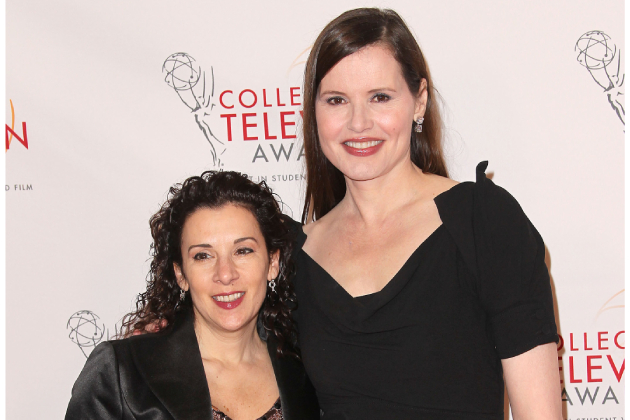NEW ORLEANS — Realscreen Summit’s annual “State of the Nation” panel brought together top executives from the industry on Monday (Jan. 27) to discuss the current and future trends driving non-scripted content.
Panelists included Shade Grant, partner and co-head of non-scripted programming at ICM Partners; Eli Lehrer, EVP and general manager of History; Allison Page, president of Magnolia Network; Tim Pastore, CEO of All3Media America; and Edward Simpson, chief strategy officer at Wheelhouse Group.
Among the topics discussed were the “niche-ification” of content, how small companies can compete with merged media giants and the future of linear as streamers continue to grow.
To kick off the panel, the executives shared their insight into the biggest trends of the last year.
“We’re moving from these clouds of disruption into what is arguably going to be tectonic shifting of our industry,” Simpson said. “That was really symbolized with WarnerMedia and NBCU’s entry into streaming.”
Pastore added that the numerous hours of unscripted programming produced in the last year will continue to rise. “For us, it’s an exciting time,” he said. “There is no ceiling in sight.”
Lehrer chimed in that the increasing fragmentation of the TV landscape is leading to the “niche-ification” of channels, or a strengthening of the core brand offering through consistent on-brand programming.
A key shift, panelists noted, is the onslaught of content conglomerates entering the streaming fray, creating potential challenges and rewards for both buyers and sellers.
“Look at the success of something like TLC in the past year,” Page said. “A brand that’s strong, that knows what it is and isn’t trying to be everything, it’s trying to be what it is very well, helps. There are a number of us betting on linear not being dead.”
Lehrer echoed Page, explaining that History has a “clear, well-defined lane,” offering the network a competitive advantage.
“If someone has a project that touches on history, there’s an obvious rationale for bringing it to us as opposed to a more general interest platform,” he added. “Where SVODs have been more challenging for us is on the budgetary, economic side. They’re just operating with a different return on investment model than we are.”
From the seller side of the spectrum, Pastore added: “For us, in terms of our organizing principles and what we look for in our partners, it’s simple. It’s passion, it’s proactive partnership and programming… Personally, I’d rather take a smaller order from a network or platform that has a serious passion for a project.”
Simpson said that for Wheelhouse, it’s important to take a 360-degree approach to content.
“Linear platforms, at this point of change, are really open to working with us and working with producers in thinking about how we commercialize content in a different way, and so it’s not just about who pays the highest price, it’s thinking about it from a global perspective,” he said.
The discussion shifted to how producers and networks can make linear and traditional programming more appealing to new talent that might be more drawn to the streamers.
“It’s been interesting for me to talk to producers over the past few months because I’m always curious about what their experience is on the SVOD side,” Lehrer said. “It’s been very interesting to hear that they are going through the same challenges and issues when producing a show for a place like Netflix that they would at a traditional, linear cable channel. Which is not surprising because Netflix is populated with executives who came up in the traditional cable business.”
Pastore added that there’s a fiscal responsibility for All3Media America to nurture talent in-house as showrunners, executive producers and editors become harder to hold onto.
To cap off the panel, executives talked about how mergers and acquisitions are reshaping the non-fiction industry, and how that shift impacts buyers and sellers, big and small.
“What does it do for us as sellers? It’s, in some ways, an opportunity, and in some ways you are dealing with business affairs coming together, programming coming together, and there’s a strange attrition that happens,” Grant said, adding that there’s still a place for up-and-coming companies.
Lehrer added that the advantage of being a brand under a larger company, A+E Networks, was the ability to take risks. “Live PD on A&E, that was an incredibly bold swing that I’m not sure other companies would have taken, but it’s paid off.”
Page echoed Lehrer, chiming in: “Within any of these companies, you find a home, you find a creative partner and you do your thing.”
Pastore capped off the discussion by sharing what All3Media America is looking for when bringing a production house under its umbrella.
“For us, as a seller and as a production company, we look at ourselves as hopefully a beacon for independent producers looking to mitigate that risk at the end of the day, who need a boost, who need support services,” he said. “I do believe there’s still noise to be made from smaller upstarts.”
Photo: Rahoul Ghose






























